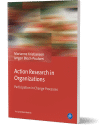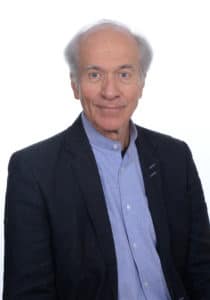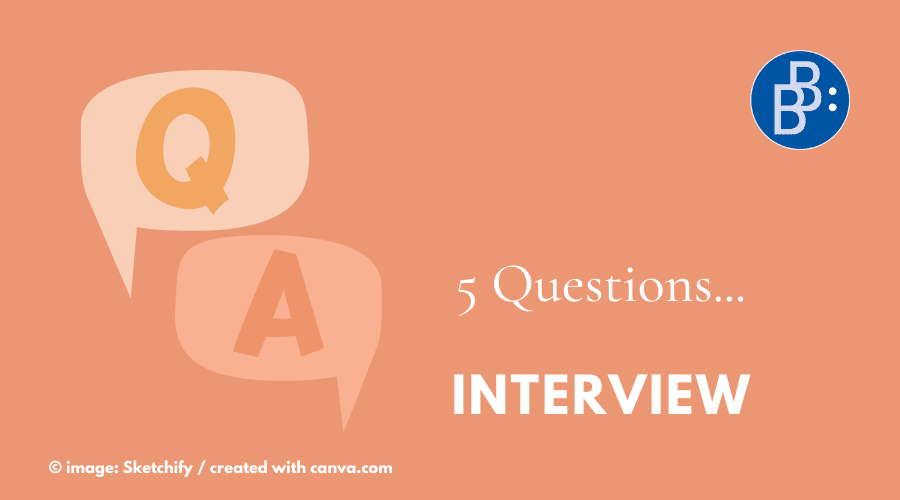 New with Budrich: Action Research in Organizations. Participation in Change Processes by Marianne Kristiansen and Jørgen Bloch-Poulsen
New with Budrich: Action Research in Organizations. Participation in Change Processes by Marianne Kristiansen and Jørgen Bloch-Poulsen
About the book
Who decides to initiate change processes in organizations? Who sets the goals? What does it mean for employees to participate in change processes? The book examines organizational change processes based on collaboration between employers, employees and action researchers in Europe and the U.S. in the later part of the 20th century. The authors offer important insights into participation and change in organizations for researchers and practitioners by identifying dilemmas and paradoxes, conflicting interests and exercising of power.
Short vitae
 Marianne Kristiansen: I am an Associate Professor Emerita and Ph.D. at the Institute of Communication and Psychology at Aalborg University/CPH, Denmark within interpersonal and organizational communication. As an action researcher I focus on participation, power, and dialogue.
Marianne Kristiansen: I am an Associate Professor Emerita and Ph.D. at the Institute of Communication and Psychology at Aalborg University/CPH, Denmark within interpersonal and organizational communication. As an action researcher I focus on participation, power, and dialogue.
I hold a Master of Arts (cand. mag.) in English and Danish from the University of Copenhagen (1975). I have studied at the University of Kansas and at Radcliffe College, Boston, and am trained as a psychodynamic and body psychotherapist. I have been a co-editor of the journal Action Research from 2008-2011 and am a member of the Editorial Committee of IJAR – International Journal of Action Research.
 Jørgen Bloch-Poulsen: I am former Associate Professor in employee competence development and organizational change processes at the Institute of Learning and Philosophy at Aalborg University/Cph. I am a senior lecturer at the Master’s Programme in Conflict Mediation at the Faculty of Law at Copenhagen University.
Jørgen Bloch-Poulsen: I am former Associate Professor in employee competence development and organizational change processes at the Institute of Learning and Philosophy at Aalborg University/Cph. I am a senior lecturer at the Master’s Programme in Conflict Mediation at the Faculty of Law at Copenhagen University.
I hold a M.A. Research in the history of ideas from Aarhus University (1972) and I am trained as a psychodynamic psychotherapist. I have written a Ph.D. thesis on Marianne’s and my contribution to the development of a theory of dialogue and dialogic competences in organizational action research.
1) Dear Ms Kristiansen, dear Mr Bloch-Poulsen, please summarize the content of your current publication Action Research in Organizations for our readers.
Ideally, action research in organizations means that employers, employees, researchers, and other interested partners together initiate a combined change and research process in a workplace, because they want to improve and examine something.
Often these processes are called democratic, participatory, co-generative etc. The book examines the meaning of the prefix ‘co-‘, i.e. what participation means in practice. Does it imply that such processes are democratic? Does it mean that employees, e.g., decide that these processes are to be initiated? What their goals are going to be? How they are designed and evaluated? Do researchers have a monopoly on interpreting the results or? Do employers and employees participate as co-researchers, as respondents or?
These and similar power issues are described and analyzed through a study of some famous organizational action research projects in the 20th century: Kurt Lewin’s change-oriented social science experiments in the American textile industry in the 1940s; the socio-technical systems thinking starting with the Tavistock Institute’s studies in the British coalmines in the 1950s; the Norwegian industrial democracy projects in the 1960s; the Swedish and Norwegian democratic dialogue projects in the 1980s, and pragmatic action research projects in the Spanish cooperatives in the 1980s. The projects represent different approaches to action research as applied research, accompanying research or co-generative research.
The book focuses on tensions, dilemmas, and paradoxes arising when involving partners with different interests and knowledge such as those of researchers, employers, and employees.
2) From the perspective of organizational action research, what are currently the greatest challenges for participation in change processes?
The book points to three major challenges facing organizational action research to-day:
- A higher degree of co-determination for employees
In most of the examined action research projects, participation means that employees can suggest methods to implement the goals decided by employers and action researchers in advance. Thus, participation means deliberative democracy in a weak sense in terms of methods. Only in few cases, the employees have co-determination on the means or methods. Usually, they have voice, but rarely choice.
As employees become higher educated, research shows they do not only demand to be heard, but to be part of decision processes. Co-influence will no longer be sufficient, we think co-determination will become necessary. This does not only deal with how a goal is going to be achieved. Employees want to participate in deciding the goals of a combined research and change process, how it is to be designed and evaluated, and afterwards who is allowed to tell “the truth” of it or learn from it. Thus, we think participation must develop from co-influence into co-determination on several aspects.
- Increased emphasis on action researchers’ self-reflections
This means, too, that action researchers no longer have a patent on truth automatically. Conversely, this does not imply that due to a higher education employees and employers become researchers. We think that ongoing dialogue on the exercising of power between researchers, employers, and employees becomes crucial, because they have different and often contrasting professional interests and knowledge. During the writing of the book, we came to understand participation as exercising of power, and to conclude that action researchers’ ways of exercising of power could be considered as a silent discourse in the history of organizational action research.
- Increased emphasis on basic academic standards
In some countries, action research is considered pariah. It does not live up to positivist ideals of distance to the object, because its knowledge interest is not only to produce explanations or interpretations, but to create changes. As action researchers, we think this positivist value-free ideal is itself a value. Conversely, the book points to some action research projects that exclude themselves from academia by not providing adequate documentation or valid argumentation. We understand improved fulfillment of basic academic standards as a current challenge for action research in organizations.
3) How do you think these challenges will change in the coming years?
We do not have a qualified bid for how the labor market will develop in the future with increasing globalization, climate changes, migration etc. We think complexity will grow and thus tensions, dilemmas, and paradoxes. Probably, this means that action researchers must be able to handle unpredictable contexts to a greater degree.
We fear that continued self-reflection and increased emphasis on basic academic standards will become more difficult in the future. In our view, this is due to a continued de-reflection of higher education. Reflection is losing ground to competence. Second-loop learning is being substituted by single-loop, why by how. To a great extent, questions like: ‘What is my status and obligation as an researcher?’, ‘Why do I do as I do?’ seem to be substituted by ‘What is the most efficient method?, How can I perform in the most appropriate way?’
However, action research is not only a method. It is a contribution to creating a better world, not for, but together with other people. This requires continuous self-critical reflections together with other partners with different interests and professional backgrounds.
We think we have paid some hard lessons in the action research projects we have contributed to within the last 25 years. We hope the book can help others not to make the same mistakes, but hopefully learn from some new ones.
4) How did you get the idea to write this book?
When we entered the field of organizational action research in 1995, we would have liked to read a book like the one we are publishing now. We realized very quickly that participation in change processes is very complex. Often, we were faced with many practical dilemmas and paradoxes that we did not know how to handle. Many of them dealt with balancing voice and choice when involving employees and employers in change processes. Others were of a more scientific kind. Among others, they dealt with how to understand and document emergent change processes and our own practice as action researchers in co-operation with partners.
We would have liked to read a book like our own where we could learn that we were not the only ones dealing with such challenges. We started to read what former colleagues had done within the field, but we never had time enough to study their work in depth and write about it. We were too preoccupied by action research projects, teaching, writing articles, reviewing etc, etc.
Now, we are emerita and senior external lecturer and have had time to write the book that we would have liked to read when entering the field. The book is our goodbye to a field that have given us many pleasures, challenges, and experiences. We hope different kinds of readers can find inspiration here and hopefully learn that their individual challenges might not only be their problems. We hope the book might help to understand the problems as more general challenges when doing action research in organizations.
5) This is why we are authors with Barbara Budrich
Barbara Budrich publishes the International Journal of Action Research. Werner Fricke, the former Editor-in Chief of the journal, learned about our book and suggested to publish it at Budrich. We are grateful for his recommendation and have felt at home at Budrich during the process. We appreciate its professionalism in terms of compliance with deadlines, rapid follow-ups etc. We like their openness to dialogues about crucial matters like, e.g., the title of a book, and the general kindness we have met from all employees. Thank you or ‘tusind tak’, as we say in Danish. We warmly recommend Budrich to future authors.
Order now via Budrich webshop
 Marianne Kristiansen, Jørgen Bloch-Poulsen: Action Research in Organizations. Participation in Change Processes
Marianne Kristiansen, Jørgen Bloch-Poulsen: Action Research in Organizations. Participation in Change Processes
IJAR – International Journal of Action Research (subscribe to Alert here)
© header image: Sketchify <https://www.canva.com/p/sketchify/>
created with canva.com <https://www.canva.com/>

